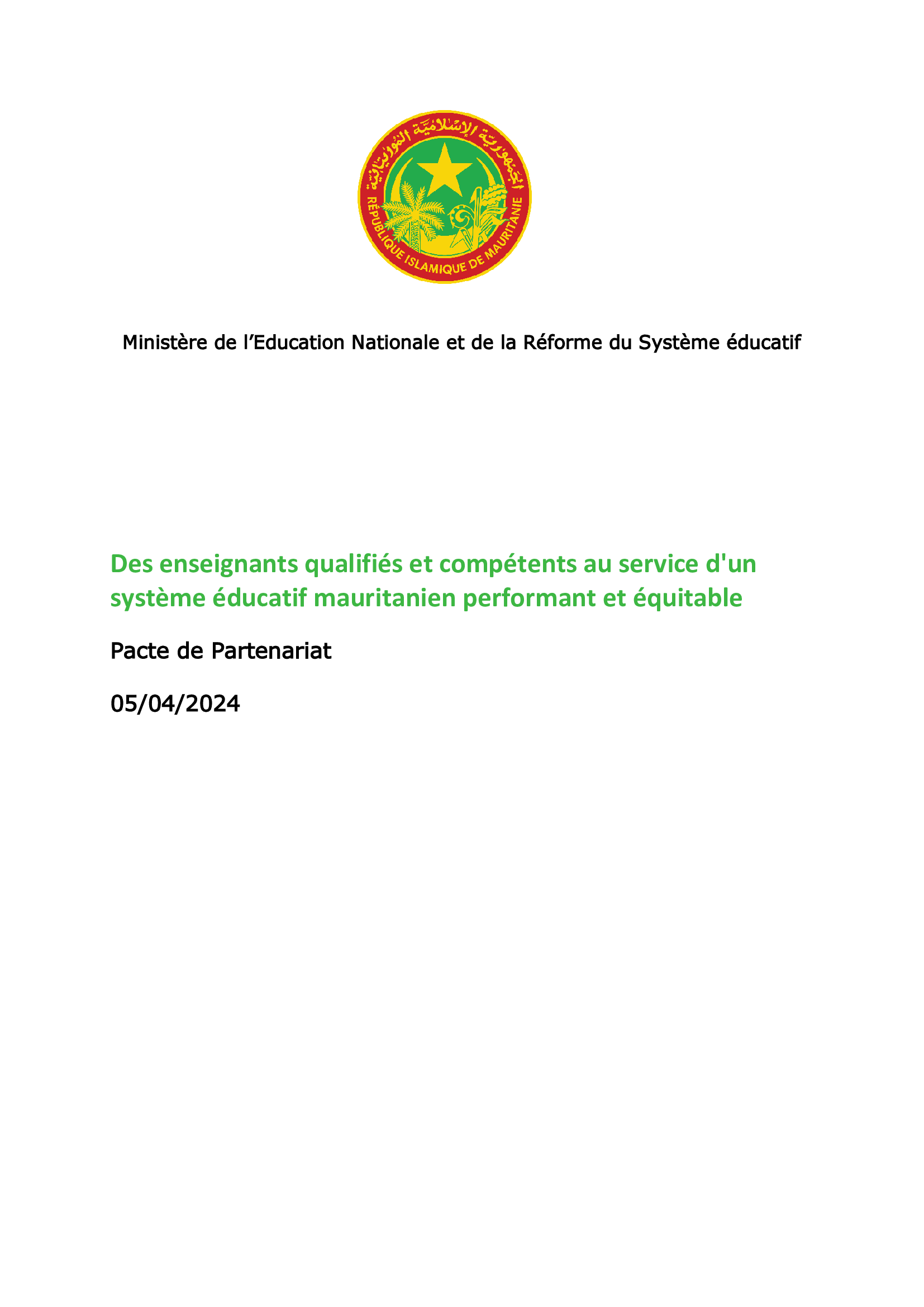Education in Mauritania

Partner since:
Total grant support: US$51,902,665
Grant eligibility:
- Multiplier
- System capacity
- System transformation
Partnership compact
Priority: Improve teachers' qualification and competences for an efficient and equitable education system.
Coordinating agency: Agence française de Développement
GPE Team lead: Adria Rakotoarivony

